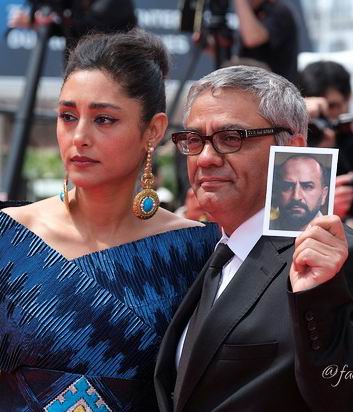|
|
| Welcome to Online Film Home! |
|---|
|
|
|
 |
VENICE 2024 Out of Competition
Thomas Vinterberg • Director of Families Like Ours
by Jan Lumholdt, Cineuropa
September 3, 2024
“You could say that we inspired COVID, rather than the other way around”
“It was actually conceived of several years ago as a crazy, futuristic idea, and was rejected by some of my friends,” he explains. “And suddenly it has become a normality, which is a little scary.” --Variety
“I wanted to make this real, and I think Denmark is a country that would not wait for a flooding, we would be prepared,” he says, adding that he believes a “fair way” would be found to rescue as many people as possible. “So I think in reality it would be a catastrophe movie in slow motion as it unrolls.” --Variety
VENICE 2024: The acclaimed director talks about his choice of subject, his creative process and whether there’s a Danish film wave still out there

Thomas Vinterberg • Director of Families Like Ours ; (© Giorgio Zucchiatti/La Biennale di Venezia/Foto ASAC)
In Families Like Ours, Thomas Vinterberg’s debut series, screening out of competition at Venice, the entire Danish population is turned into homeless refugees owing to the rising sea levels submerging their country. The acclaimed director talks about his choice of subject, his creative process, and whether there’s a Danish film wave still out there.
Cineuropa: This project was announced in late 2020. Was the outbreak of COVID-19 earlier that year a possible trigger?
Thomas Vinterberg: The story had come up already in 2017, before COVID-19 and before Ukraine. I was in post-production on Kursk in Paris, and missed my home and my family. Right then, the story came to me. We started writing, and the people we presented it to thought it was a pretty weird, out-there sci-fi idea, except for Zentropa, which was on board straight away. Then came COVID-19, and several things that happened during the pandemic were more or less already in our script. Some of it we actually removed in order not to come across as too obvious. You could say that we inspired COVID, rather than the other way around.
You’ve chosen to make the other Nordic countries more or less off-limits to the Danish refugees. It does make the story more interesting, but surely, through all these years of close Nordic alliance, it does seem noteworthy, doesn’t it?
Let me first emphasise that we have no political or moralistic agenda, but rather a dramatic and an existential one. The story just needed the premise that we could send the Danes further away than just to Sweden or Norway. Again, weirdly, they were first supposed to go to Kyiv, but then the war broke out, so we opted for Bucharest instead. It felt realistic that it would be less costly to provide living conditions in Romania compared to Scandinavia, which today has a sizeable refugee crisis.
Families Like Ours is your first series, a different ball game compared to feature films. How much creative freedom did you feel you had within this format?
Firstly, this is financed by the Danish Film Institute together with television stations like Canal+ and TV2 Denmark, but we deliberately avoided the streaming companies, not least to be able to keep ownership and continue getting revenues. We approached the story like one big film, not like a string of episodes. I had to create cliffhangers especially for the format, and also to adhere to a fixed number of minutes per episode, which I’m not used to. Some good moments here and there had to go for this reason. On the other hand, my original script of six episodes was expanded into seven in the process. First and foremost, I was given full creative freedom. I have an opus going out into the world that I’m very proud to put my name to.
The cast has some familiar names that you’ve worked with before, like Paprika Steen and Thomas Bo Larsen. Others, like Nikolaj Lie Kaas and Amaryllis August, are “first-timers”. Can you share some thoughts about the casting and writing for these actors? Do you write for them especially?
As much as I can, I’ll write with certain actors in mind, and I ask them early on. I got many on board that way, like my wife, Helene [Reingaard Neumann], who plays Nikolaj’s wife, and Nikolaj, whom I’ve wanted to work with for a long time, plus Paprika and little Max Kaysen Høyrup from Another Round. One I couldn’t write for, as she came in very late, was Amaryllis August, the main character, which led to some extensive re-writing. It's Amaryllis’s first acting part, and I feel she’s here to stay.
To what extent is this family like Thomas’s own family? And would you say there’s a character that’s especially close to Thomas himself?
Well, I’m all of them. I’m feisty young Elias, the near-adolescent who falls in love with Laura; I’m Lucas, the shy little kid; and I’m Laura’s dad, Jacob. But first and last, it’s a fictive family.
Could there be a Families Like Ours Part II?
I don’t have the story, but I would very much like to spend more time with these people.
Nicolas Winding Refn is another Venice player this year, another one of the key figures of the new Danish film wave in the mid-1990s. Is the wave still around?
The wave is gone. Time has eroded it. Right now, both the Danish and the world film industries stand in hesitation regarding what direction to take next. A certain lack of courage can be felt at the moment, but that said, and in the long run, I remain optimistic. I’m even tremendously excited about what will be happening next.

|
|
|
|

Cannes 2024 |
Choose an item to go there!
|
| |
|
|

